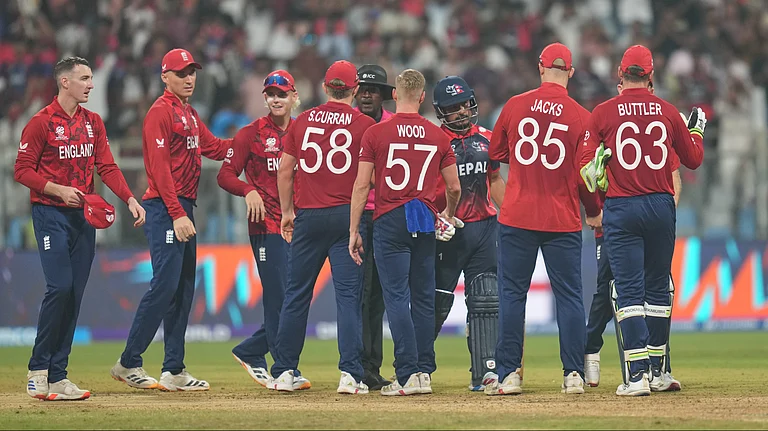Amitav Ghosh is a living embodiment of what has become one of his principal themes: the journeyings and displacements of the Indian diaspora. Born in Calcutta, he has studied in Delhi, Oxford and Cairo, taught in Harvard, and currently has three writing desks: one each in Bengal, Goa and Brooklyn. Along with V.S. Naipaul and Jhumpa Lahiri he is one of the three pre-eminent Indian writers who have taken exile, identity and migration as their subjects. Certainly these are themes which surface over and again in Ghosh’s varied and formidably ambitious body of work from the mid-1990s onwards.
The narrative of The Glass Palace (2000) revolved around the fortunes of Rajkumar, a Bengali serving boy exiled in Burma who rises to become a logging magnate; the book follows the fortunes of his family as Britain’s East Asian Empire crumbles before the Japanese onslaught in World War II. The Hungry Tide (2005) was a tale about the seas and swamps of the Sunderbans told through Piya Roy, an NRI brought up in the US who returns to the Bengal home of her ancestors only to find a much more foreign country than she had expected.
Migration was also the subject of what many consider Ghosh’s most original book, In An Antique Land (1993). Here the author dredged from the archives of the synagogue of Ben Ezra in Cairo documents concerning Bomma, a heavy-drinking Indian slave involved in the spice trade between Kerala and Egypt in the 12th century. Journeying between the libraries where the slave’s exploits are now preserved—during the 19th century the synagogue’s archives were scattered between Leningrad, Oxford, Cambridge, and Philadelphia—Ghosh retrieved Bomma’s story from the footnotes of history.
The plot revolved around the medieval trade network which operated along the Red Sea, supplying the Middle East with the spices and textiles of Malabar. Bomma, Ghosh’s hero, was owned by one Abraham Ben Yiju, the polymath son of a rabbi from Tunisia. During the twelfth century, as the Mediterranean came increasingly to be controlled by the pirates of Christian Europe, so Ben Yiju decided to leave the declining markets of North Africa and set himself up in India. There he married a Malabar girl and took on Bomma as his local agent. According to one of Ben Yiju’s business associates in Aden, Bomma would turn up at his office, wildly drunk, demanding money: "‘Give me more money, [what I have] is not enough.’ He took four months money from me, eight dinars. Often he would come here, very drunk, and would not listen to a word, I said." Throughout the book, Ghosh interweaves the slave’s adventures with his own experiences as a young anthropologist working on a PhD in a village near Cairo.
These same trade routes travelled by Bomma, and similar questions of displacement, power and identity form the frame for Ghosh’s latest work, The Sea of Poppies. This capacious, humane and panoramic novel, the first volume of a planned trilogy, is set in the 1830s, in the lead-up to the Opium Wars. Rather than an Indian slave travelling to Egypt, Poppies revolves around Deeti, an opium farmer’s wife who escapes sati from her husband’s pyre and—like Naipaul’s forbears—is forced to sell herself into a form of legalised slavery as an indentured labourer bound for the plantations of Mauritius.
Ghosh’s anger at the hypocrisy and violence inherent in this trade is well justified: it is one of the most shoddy and shocking episodes in the whole violent history of the British Empire. By the late 1830s, the European market in spices which had first brought the British to India had slumped, and the East India Company kept itself solvent by a triangular trade which involved growing opium in India, and selling it in China; in China the Company then bought tea, which it sold in Britain. In order to grow the opium needed to buy enough tea to satisfy British appetites, the Company wreaked havoc across the Gangetic plain, compelling peasants to abandon their traditional food crops and plant poppies instead. The opium went on to devastate China; but the trade yielded the Company two million pounds a year, and was crucial to its solvency.
Using the same narrative technique he so successfully deployed in The Glass Palace, Ghosh deftly creates a web of beautifully interlocking stories and characters whose fortunes cross with Deeti, and the former slave ship, the Ibis, into which she and her fellow exiles are packed. The various tragedies which cause the characters to be sold into bondage successfully bring to life the brutalities of the trade: as well as various bankrupt poppy farmers and opium addicts, we meet, for example, a Bengali raja cheated out of his estate by an opium trader, and Jodu, a simple Bengali fisherman whose canoe is smashed by the Ibis as it sails up the Hooghly.
What is perhaps less successful is the way that Ghosh’s anger at the injustices of Empire are expressed through the novel’s British characters, few of whom develop (at least to this Angrezi reader) into more than one-dimensional caricatures of imperial racism: the crooked opium merchant Benjamin Burnham turns out to have a secret craving for spanking, his social-climbing wife is enveloped in a fog of laudanum, while his first mate is unmasked as a violent sadist. This is a world, familiar from Bollywood movies like Mangal Pandey, where the Indian characters are invariably drawn vulnerable and big-hearted, while the English are uniformly unfeeling brutes.
Cumulatively this shows a lack of nuance unusual in Ghosh’s writing: after all, anyone who reads the letters of the British in India in the 1830s will certainly find plenty of ruthless racists, but among them there were also many sympathetic Indophiles—gentle converts to Hinduism like General Charles "Hindoo" Stuart who during the period in which this novel is set was writing a long series of articles in the Calcutta Telegraph trying to persuade the Bengali memsahibs to adopt the sari (something he believed would, especially when wet, "eminently contribute to keeping the bridal torch for ever in a blaze"), or wonderful writers like Fanny Parkes whose book Wanderings of a Pilgrim in Search of the Picturesque, again dealing exactly with the time period of this novel, expresses a deep and perceptively informed love for India and its inhabitants. There were also a surprisingly large number of mixed marriages in this period: after all, as recently as the beginning of the 19th century one in three British wills in India left everything to an Indian woman or an Anglo-Indian child. None of this complexity is even hinted at in the novel, which is almost Manichean in its racial profiling.
Moreover, the language Ghosh’s Englishmen speak is an intriguing and entertaining, but ultimately unconvincing Hobson-Jobson mish-mash of English and Hindustani more extreme than anything found in the novels, diaries or letters of the period: "Hot cock and shittleteedee! Damned badzat pootlies! Call me a cunnylapper would you?" shouts one character at a gossiping dancing girl during a dinner party, while another English sea captain who seems to have learned his dialogue from Captain Haddock exclaims in horror, "Damn my eyes if I ever saw such a caffle of barnshooting badmashes!" Using such slang may be an interesting literary device—the book also has educated Indians speak perfect Queen’s English, an enjoyable inversion of the Hinglish middle-class Indians are usually given to speak in Raj novels—but it certainly doesn’t ring true as spoken dialogue.
Yet these are small quibbles. Poppies remains a hugely absorbing and enjoyable book. Ghosh has abandoned the sophisticated literary experimentation that marked his superb early books such as The Shadow Lines and The Circle of Reason, and is now channelling his creative energies into the skilful story-telling and pacey narrative development which made The Glass Palace such a wonderfully gripping tale. Poppies is a worthy successor to that book and is every bit as enthralling and as passionately written; as such it deserves to be placed on the same shelf as such masterpieces of anti-Imperial fiction as Peter Carey’s Oscar and Lucinda and Barry Unsworth’s Sacred Hunger. For, like the opium that forms its subject, the narrative becomes increasingly powerful and addictive as it takes hold, and most readers will now be waiting anxiously for the two further instalments of the trilogy which Ghosh is working upon.
(William Dalrymple is the author The Last Mughal: the Fall of a Dynasty, Delhi, 1857 which won the Duff Cooper Prize for history and biography)


























